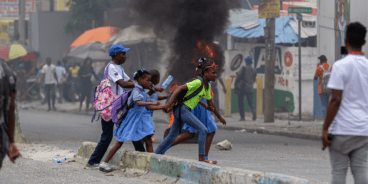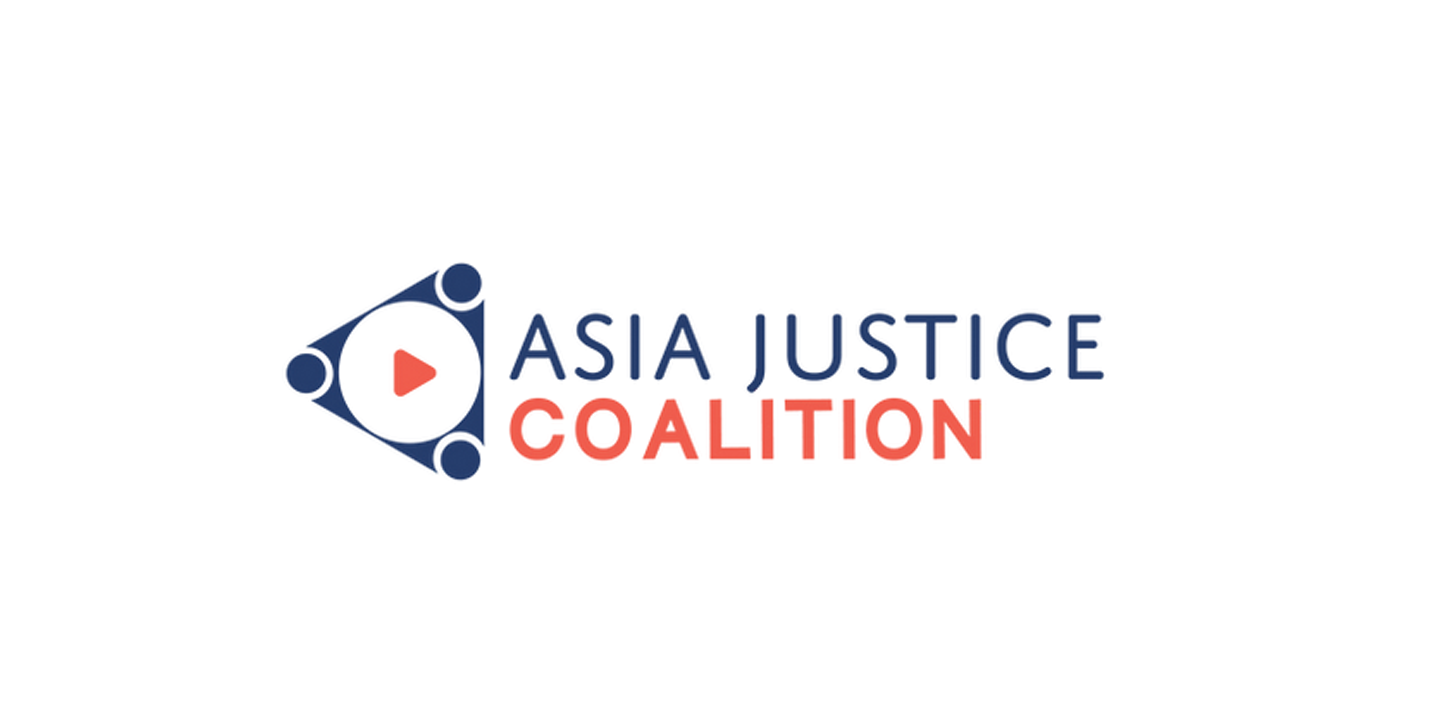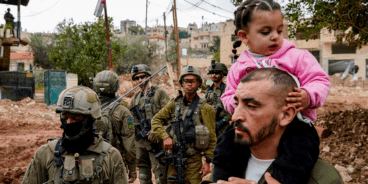

Asia Justice Coalition Statement – Urgent Call for Accountability in Rakhine State
The Asia Justice Coalition is a network of organizations whose purpose is to promote justice and accountability for gross violations of international human rights law and serious violations of international humanitarian law in Asia, and to contribute to the fulfillment of the rights of victims and their families.
As we are coming to the fourth year of the military coup in Myanmar and the seventh anniversary of the 2017 exodus of more than 730,000 Rohingya forced to flee from Rakhine State to Bangladesh during the Myanmar military’s so-called ‘clearance operations’, the atrocities committed against the Rohingya continue unabated. According to the Independent Investigative Mechanism for Myanmar (IIMM), the past year has witnessed horrific levels of brutality and inhumanity across Myanmar, including crimes committed with an intent to punish and induce terror in the civilian population. The escalation of conflict in Rakhine State since November 2023, compounded by the international community’s inaction, is eerily reminiscent of the 2017 atrocity crimes committed against the Rohingya by the Myanmar military.
Situation in Myanmar
The Myanmar military has committed widespread and systematic human rights violations, including crimes against humanity and war crimes, across the country. Since the 2021 coup in Myanmar, more than 5,534 civilians have been killed by the Myanmar military, and over 27,226 people have been arbitrarily arrested and detained. According to the United Nations Office for the Coordination of Humanitarian Affairs (OHCHA), more than 3 million people have been internally displaced, and 18.6 million people are in urgent need of humanitarian aid. In continuation of its persistent patterns, the military junta routinely conducts raids, torches civilian properties, including schools and hospitals, and burns down homes. In defiance of international humanitarian law, the military has been conducting airstrikes, using anti-personnel landmines, and intentionally targeting and killing civilians, and causing the destruction of civilian property. According to the Armed Conflict Location and Event Data Project (ACLED), in the first half of 2024, military airstrikes increased by 112% compared to the whole of 2023. On 10 February 2024, the military began enforcing the 2010 People’s Military Service Law, enabling the conscription of Burmese citizens, men ages 18 to 35 and women ages 18 to 27, as well as older professionals such as doctors and engineers, for up to two years and as long as five years in a State of Emergency.
The resumption of conflict in Rakhine State between the Myanmar military and the Arakan Army since November 2023 has resulted in a further and swifter deterioration of the situation. Intensified attacks between the two parties have disproportionately affected over 600,000 Rohingya living under de facto indefinite detention and apartheid-like conditions in Rakhine State. Despite denying the Rohingya citizenship in Myanmar, the military is forcefully recruiting the Rohingya to fight the Arakan Army with the use and threat of force, abductions, and kidnappings, and on the pretext of securing freedom of movement and the grant of citizenship. In furtherance of the military’s attempts to cause intercommunal strife, the Rohingya were also forced to protest against the Arakan Army with threats of repeat of 2017 military operations, the imposition of heavy fines, and the razing of villages. Similarly, the Arakan Army is forcibly recruiting and deploying the Rohingya against the military junta, effectively using them as human shields.
The Arakan Army has gained control of and strategically positioned itself around the majority of Rohingya villages in Rakhine State and has systematically conducted offensives against the Rohingya. The attacks include raiding and forcing the evacuation of Rohingya townships, such as Maungdaw and Buthidaung, killing and torturing civilians, shelling and conducting drone attacks, torching houses across the village, and other direct, indiscriminate or disproportionate attacks on civilians and civilian objects. The Rohingya continue to live with increasing restrictions on movement, arbitrary arrests and detention, access to education, healthcare, employment, food, water, sanitation, and the imposition of taxes, by both the military junta and the Arakan Army. The deliberate restriction on humanitarian aid to Rakhine State, the seizure of food and other goods, the attack, torching, and destruction of World Food Programme warehouses have resulted in a situation of famine and exacerbated the hardships of the Rohingya. Rohingya women and the LGBTQIA+ population in Rakhine State are at heightened risk of discrimination, exploitation, and sexual and gender-based violence by the Arakan Army as well as the military junta.
Situation in Bangladesh
The situation of the Rohingya in the refugee camps in Cox’s Bazaar and Bhasan Char has worsened over the years. Over 1 million refugees continue to live with restrictions on movement, lack of access to adequate food, water, durable housing, education, livelihood, and health care. The dire situation within the camps has heightened the risks of human trafficking, forced marriages, and child labour and forced thousands of Rohingya to escape life in the camps by paying huge amounts to undertake precarious boat journeys on the sea.
The widespread operation of insurgent and armed groups, including the Arakan Rohingya Salvation Army, Rohingya Solidarity Organisation, and others, has contributed to increased violence and insecurity in the refugee camps. Armed groups have killed, abducted, detained and tortured with impunity in the camps. Moreover, Rohingya refugees, especially boys and men, have been reportedly enticed, manipulated, and abducted from camps in Bangladesh to join organised armed groups or transferred to Myanmar to forcibly join the military junta. Bangladeshi officials, including the police, have failed to actively monitor, maintain peace and security, and provide protection to the Rohingya. The rising incidents of sexual abuse and exploitation of women, girls, and LGBTQIA+ persons within the camps, without any real redress, further reflect the absence of accountability. The renewed fighting between the military and the Arakan Army forced at least 4000 Rohingya in Rakhine to flee to the Bangladesh border, only to be beaten and pushed back by Bangladeshi officials in flagrant violation of international law.
International Accountability Efforts
The ongoing case at the International Court of Justice (ICJ) in The Gambia v. Myanmar pertains to Myanmar’s state responsibility under the Genocide Convention. Despite the provisional measures ordered by the ICJ for Myanmar to take all measures to prevent the commission of genocidal acts and to ensure that the military and security forces do not commit genocidal acts, the Myanmar military continues to commit atrocities against the Rohingya. On 3 July, the ICJ found that the interventions filed by seven states (the Maldives, the Netherlands, Canada, Denmark, the UK, France, and Germany) are admissible ‘in so far as they concern the construction of provisions of the Convention on the Prevention and Punishment of the Crime of Genocide’. Consequently, all seven states are authorised to submit their written observations in accordance with Article 86 of the Rules of Court.
Since 2019, the International Criminal Court (ICC) has been investigating but has not yet made any significant progress concerning the arrest warrants in the situation. The ongoing ICC investigation is aimed at seeking individual criminal responsibility for crimes against humanity, such as deportation, persecution, and other inhuman acts, committed against the Rohingya population, at least in part on the territory of Bangladesh. However, in a welcome move, the Federal prosecutor in Argentina has sought international arrest warrants against 25 Myanmar officials, including Commander-in-Chief of the Armed Forces, Min Aung Hlaing, for the crime of genocide and crimes against humanity committed against the Rohingya community between 2012 and 2018. The case before the Federal Court in Buenos Aires is based on the principle of universal jurisdiction, initiated by the Burmese Rohingya Organisation UK (BROUK) in November 2019.
In July, the Association of Southeast Asian Nations (ASEAN) issued a joint communiqué reaffirming its support for the Five-Point Consensus, despite the brazen disregard of the agreement by the Myanmar military and consistently undermining regional stability. The non-compliance of the military junta with United Nations Security Council Resolution 2669 (2022) and the failure of ASEAN to hold the military accountable show the limitations of the Five-Point Consensus framework and the incapacity of the regional bloc. The deferral of responsibility to ASEAN by the international community has emboldened the Myanmar military and resulted in accountability gaps. As per the recent report of UN Special Rapporteur on the situation of human rights in Myanmar Tom Andrews, many banks based in ASEAN are facilitating the Myanmar military junta’s access to weapons and related materials, and thus contributing to and exacerbating the conflict.
The Asia Justice Coalition is deeply concerned and condemns the indifference of the international community to the worsening situation of the Rohingya and other civilians in Rakhine State. It calls upon:
-
-
- All parties to the conflict to immediately end the ongoing attacks and military operations across the country, including by ceasing all violations of international law against Rohingya and other minorities.
- The military junta to facilitate safe, rapid, and unimpeded humanitarian access.
- The new interim government of Bangladesh to provide increased protection and security to the Rohingya and investigate and prosecute security officials responsible for rights violations against the Rohingya.
- The Bangladesh interim government to end restrictions in the refugee camps and provide Rohingya freedom of movement and access to education, livelihood, and health services.
- ASEAN to overhaul the Five-Point Consensus and set a concrete and timebound action plan, block Myanmar from all its meetings, and impose financial sanctions, and an arms embargo against Myanmar.
- The UN Security Council to hold a public session on the situation in Myanmar, impose targeted economic sanctions on the military and affiliates, and a binding global arms embargo, including on transfers of jet fuel and dual-use technology, and refer the situation to the ICC.
- The UN member states and regional bodies to impose targeted sanctions, stop the supply and transfer of arms to the Myanmar military, and ensure effective implementation and prosecution of sanction breaches under their respective domestic laws.
- UN member states to fully cooperate with and provide access to theIndependent Investigative Mechanism for Myanmar (IIMM) to undertake its mandated activities, including facilitating secure access to victims and witnesses.
- Neighbouring countries, including India, Thailand, Indonesia, and Bangladesh, to devise a comprehensive regional response to the refugee crisis, provide protection, support, and humanitarian aid to all refugees fleeing Myanmar, observing the principle of non-refoulement, and authorize and fund emergency cross-border aid to civilians, including internally displaced people in Myanmar.
- All countries to use all avenues and diplomatic channels at their disposal in pursuit of justice and accountability for the people of Myanmar, including civil and criminal legal actions based on the principle of universal and extraterritorial jurisdiction.
-
Related Content


Populations at Risk, March 2025
